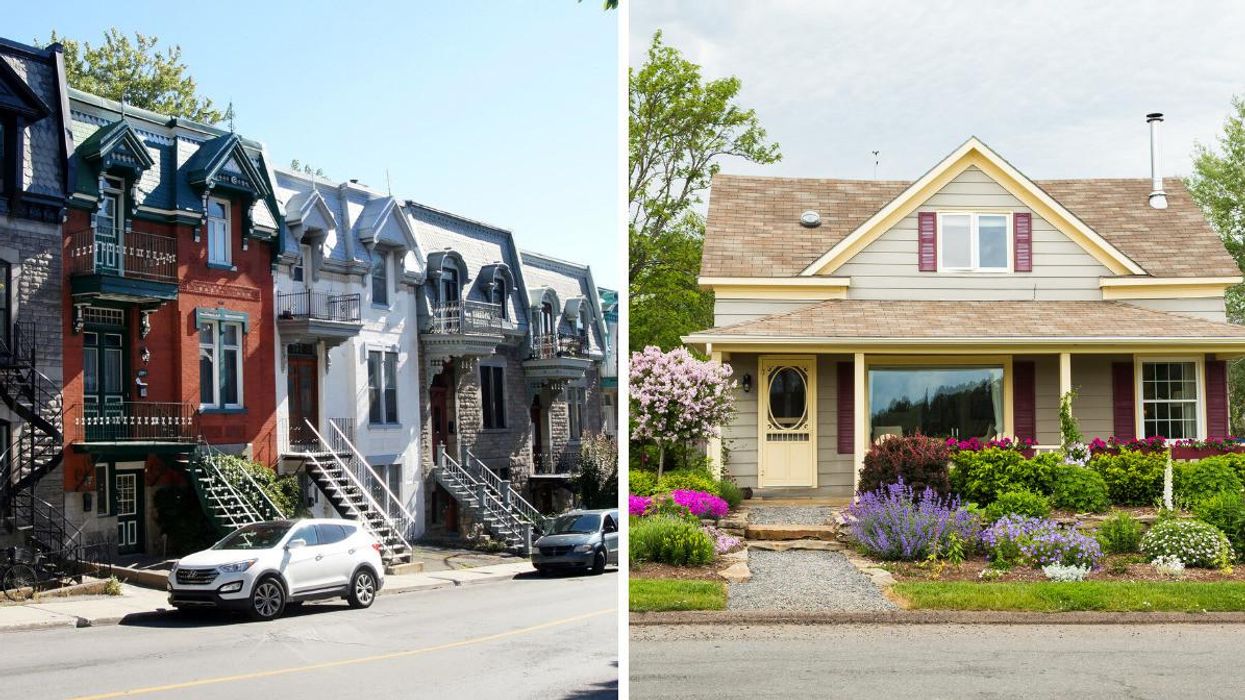Houses In Canada Haven't Been 'Affordable' Since 2004 & Here's How Long We May Have To Wait
A few things need to happen before homes can be considered "affordable" again.👇

Row houses in Montreal. Right: A home in Nova Scotia.
If you haven't noticed, housing in Canada can be pretty expensive. In fact, according to one study, the Canadian housing market hasn't actually been affordable in years.
But all hope is not lost. There could be a way to address the cost of housing in Canada within the next decade.
New research from the Canadian Mortgage and Housing Corporation (CMHC) has looked at what the housing market needs to bring it back to that affordable rate we haven't seen in almost 20 years.
According to the study, in the years 2003 and 2004, the average household in Canada would have had to put around 35.7% to 37.8% of their disposable income into buying a home.
At the time, the provinces with the highest percentage in that metric were B.C. with 45.3% and Ontario with 38.3%.
Now, if you compare that to the Canada-wide average of 60% in 2021, you can see the rapid expansion out of affordability.
The report also says that for Canada to have housing as affordable as it was in 2003-2004, there would need to be an additional 3.5 million housing units built by 2030.
This would bring the projected number of homes for Canadians to 22 million across the country, rather than the current 2030 projections of roughly 19 million.
To get to this level, Chief Economic Officer of the CMHC, Aled ab Iorwerth, said that Canada needs "an 'all-hands-on-deck' approach to increasing the supply of housing to meet demand."
In other words, if enough housing units are built, we could begin to see a decline in the average amount of disposable income required to purchase a home.
But, to meet that 2030 goal, housing construction would need to increase by more than double over the next eight years.
While we can hope for a more affordable future, right now a lot of Canadians are worried about the squeeze on their wallets.
In a recent survey, one in four Canadians said they worry if interest rates were to increase any more, they would be forced to sell their home.
This is coupled with additional affordability concerns, with inflation hitting 7.7% in May — the highest it's been since 1983.
This article's cover image was used for illustrative purposes only.